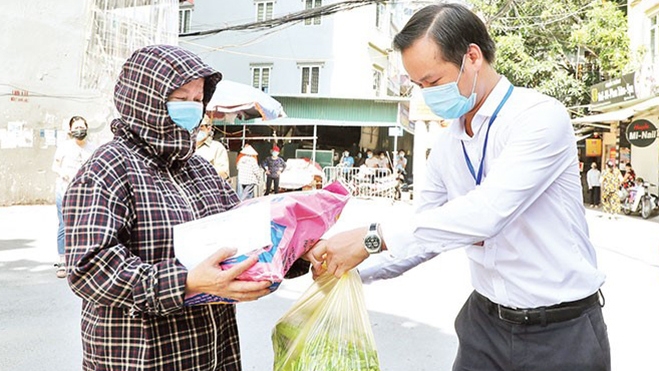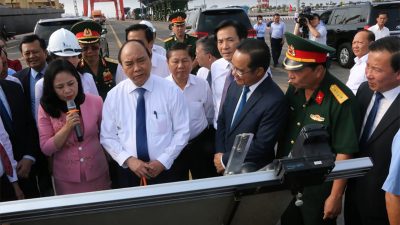
|
When implementing support packages during the pandemic, informal workers still face difficulties in accessing many support policies. Therefore, it is very important to digitise all relevant data on employees, in order to identify the right people who really need the support. |
||||
|
Associate Professor Dr. Giang Thanh Long from the National Economics University evaluated, through policies to support people and employers during the recent Covid-19 epidemic, especially those implemented in 2021, it is clearly seen, the great attention of the Party, State and all ministries, departments, branches and provincial authorities towards workers during the anti-epidemic process, especially during the fourth wave of COVID-19 until now, which is making socio-economic life difficult. These are the findings of Assoc. Prof. Dr. Giang Thanh Long at the online seminar for implementing solutions to support and stabilise the labour market in the context of the pandemic organised by Nhan Dan Newspaper in collaboration with the Ministry of Labour, Invalids and Social Affairs. Assoc. Prof. Dr. Giang Thanh Long However, according to Assoc. Prof. Dr. Giang Thanh Long, there are still difficulties when implementing support packages for informal workers.
Although support packages have reached many workers, including workers in the informal sector – who do not have labour contracts or do not participate in social insurance. This is also the group of people who have been severely affected by the pandemic over the past two years, especially during the fourth outbreak. When the country closed the economy, implemented social distancing, they immediately lost their livelihood, and did not have a source of compensation like the group participating in social insurance. There is still a fairly large number of informal workers who have not yet approached or are slow to access support policies.
Like Vietnam, Thailand, one of countries in the region with a similar large informal workforce, announced a support package of 117 billion baht (about 3 billion USD), in April 2020, of which, spent 5,000 baht (about 125 USD) to support each individual informal worker. Indonesia, another country in ASEAN, also announced a support package worth more than 600 million USD. They also digitize all of their data, asking subscribers to join groups in their area. From there, workers can easily register, and local authorities determine whether it is correct and it will be easy to identify the object. The implementation of policies in Indonesia is very effective, within just three months, it has supported more than 12 million workers and employers, with a support level of about 175 USD per person. Thus, the digitisation of all data, including employee registration, plays an important role in determining who needs the support. This is also a good opportunity for the community to realise that participating in social insurance and health insurance is a “mattress” to support workers when life is difficult. At the same time, it also spreads the advantages of these social security policies, attracting more workers to participate in social insurance. As for the support package totalling 38 trillion VND under Resolution 116 from the Unemployment Insurance Fund, Assoc. Prof. Dr. Giang Thanh Long commented that the implementation of this policy is very fast, synchronous and effective. This advantage is due to the digitisation of labour data management, with full information available on the database. Thereby, it will help to resolve the policies very quickly, reducing the cost of review. This is also a factor that helps in effective use when dealing with employee support funds.
The support policy from the Unemployment Insurance Fund has a positive meaning in helping workers who are facing difficulties in the short term. However, from a long-term perspective, it is necessary to consider issues related to the entire labour market. Towards the goal of safe, transparent and effective use of the Unemployment Insurance Fund, Assoc. Prof. Dr. Giang Thanh Long said that economic recovery is considered as a good solution. Thereby, it is possible to reduce the number of unemployed people, reduce the expenditure of the Unemployment Insurance Fund and increase the number of people paying unemployment insurance to compensate for the Fund.
|
Source: Nhan Dan Online



